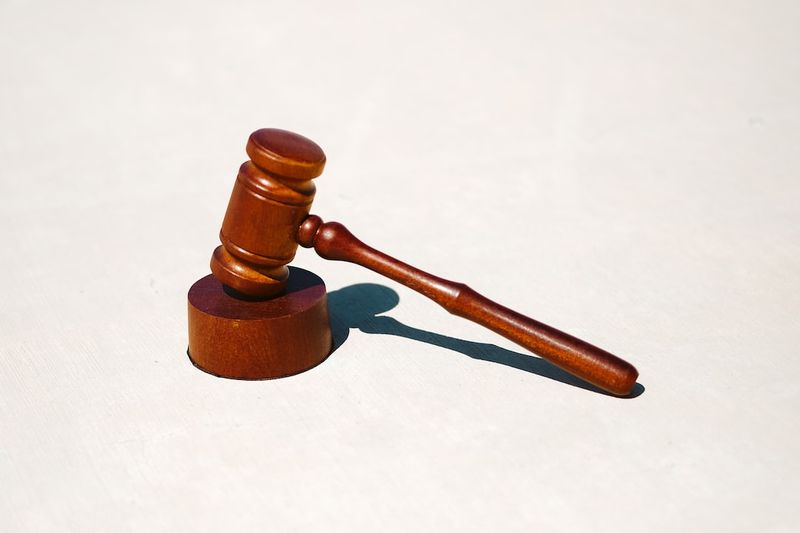Table of Contents
France Delivers Mixed Messages on Justice for Victims of Grave Crimes
Introduction
France‘s parliament has recently approved changes to legislation that aim to facilitate the prosecution of serious crimes, including war crimes, crimes against humanity, and genocide. While these changes represent a step forward, there are still significant hurdles preventing the French justice system from effectively pursuing prosecutions for grave crimes. This article will examine the implications of the recent legislative changes, highlight the remaining limitations, and discuss the need for France to fully commit to accountability for grave crimes.
The Dual Criminality Rule
The investigation and prosecution of grave crimes in France have long been hindered by the inclusion of the “dual criminality rule.” This rule, borrowed from extradition law, required that crimes such as genocide, war crimes, and crimes against humanity be explicitly criminalized in the domestic law of the country where they were committed in order to be prosecuted in France. This restriction has severely limited the ability of French judicial officials to pursue cases involving international crimes that do not have a direct connection to France.
Progress on Dual Criminality Rule
In May, France‘s highest court clarified the interpretation of the dual criminality rule in cases involving Syria, leading to debates in parliament. The recent vote to set aside the dual criminality rule in these cases represents a significant step forward, as it enables the prosecution of a potentially larger number of international crimes committed outside of France. This decision demonstrates France‘s recognition of the importance of holding perpetrators of grave crimes accountable, regardless of their geographic location.
Remaining Hurdles and Restrictions
Despite progress on the dual criminality rule, there are still notable limitations that impede the pursuit of justice for victims of grave crimes in France. Firstly, the law requires that a suspect has their “habitual residence” in France for the prosecution of serious crimes to proceed. Human rights groups argue that the recent changes may have further tightened this restriction, potentially allowing individuals implicated in grave crimes to evade accountability by seeking refuge in France.
Additionally, prosecutors in France retain discretion in deciding whether to pursue cases involving grave crimes. This discretionary power raises concerns about inconsistent enforcement and the potential for political interference in prosecuting such serious offenses. Furthermore, French prosecutors are obligated to verify whether any other national or international court has asserted its jurisdiction before opening an investigation. While this requirement aims to avoid duplication of efforts, it could potentially delay or complicate the pursuit of justice in certain cases.
Conflicting Stances
France‘s recent legislative changes represent a mix of progress and setbacks in the country’s commitment to international justice. On one hand, the decision to set aside the dual criminality rule in cases involving Syria demonstrates France‘s willingness to prioritize accountability for grave crimes committed abroad. This move aligns with France‘s stated principles on international justice and reflects a recognition of the importance of prosecuting perpetrators regardless of jurisdiction.
On the other hand, the remaining limitations and ambiguities in French law raise concerns about the extent of France‘s commitment to justice for victims of grave crimes. By maintaining restrictions on the residency requirement and prosecutorial discretion, France risks enabling individuals implicated in grave crimes to evade accountability and remain within the country. These conflicting stances highlight the need for comprehensive commitment and consistency in France‘s approach to international justice.
Conclusion
The recent changes to France‘s legislation are a step in the right direction towards ensuring justice for victims of grave crimes. However, significant hurdles remain, and the conflicting messages sent by these legislative changes raise concerns about the extent of France‘s commitment to accountability. It is imperative that France continues to address and rectify the remaining limitations to ensure that its domestic laws fully reflect its stated principles on international justice.
Victims and survivors, who have endured immense suffering, deserve a comprehensive commitment from French authorities. This includes removing unnecessary restrictions, ensuring consistent enforcement, and actively pursuing justice for grave crimes. By doing so, France can play a significant role in the global fight against impunity and contribute to the establishment of a more just and peaceful world.

<< photo by Tingey Injury Law Firm >>
The image is for illustrative purposes only and does not depict the actual situation.
You might want to read !
- Chad’s Shrinking Democracy: Restricting Political Participation in the Run-Up to the Referendum
- Breaking Cycles of Impunity: The Importance of Positive Votes on Sudan and Russia by the UN Human Rights Council
- The Urgency of Safeguarding Humanity from Lethal Autonomous Robots
- World Court Begins Historic Torture Case in Syria: A Landmark Moment of Justice
- UN Rights Body Must Act Against Impunity in Sudan
- A Critical Examination of UK’s Decision to Abandon Rwanda Asylum Transfer Plan
- Unregulated trade contributing to human rights abuses in protests, reveals global inquiry
- Rwanda’s Authoritarian Tactics: Suppressing Dissent on the World Stage